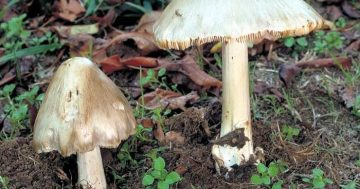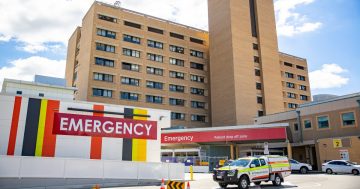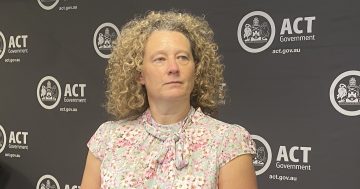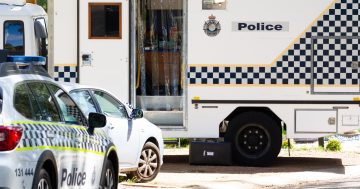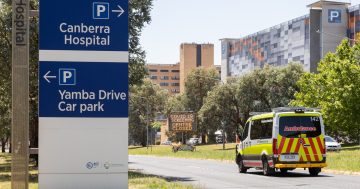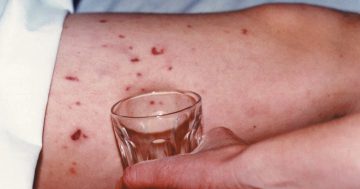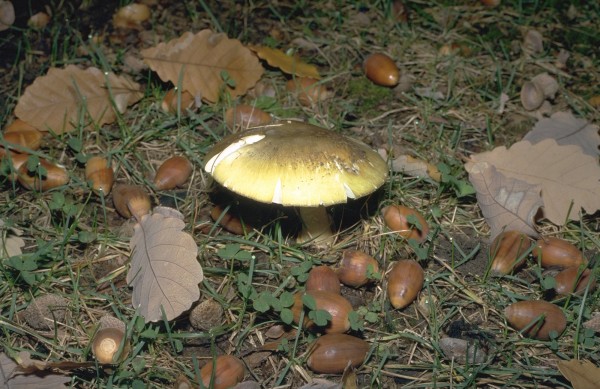
The death cap mushroom often grows near oak trees. Photo: The Food Safety Information Council.
ACT Health has issued a general warning about picking or eating wild mushrooms after a child ate a potentially fatal death cap mushroom and was taken to hospital on Friday.
ACT Health would not provide any further information about the child, their age, gender, condition, circumstances of the incident or even if they had been admitted to hospital, although given how dangerous the death cap is that should be a formality.
The child was presented to an ACT emergency department after ingesting the mushroom.
Acting ACT Chief Health Officer Dr Vanessa Johnston said in a statement that the incident was an unfortunate reminder that wild mushrooms can grow anywhere in the Canberra region, at anytime, including at private residences.
High rainfall and warm temperatures in recent weeks have been ideal conditions for death caps to grow.
“Canberrans should remember that it is never safe to pick and eat wild mushrooms,” she said.
“As the name suggests, death cap mushrooms can be deadly and all parts of the mushroom are poisonous whether they have been cooked or not.
“Eating wild mushrooms is just not worth the risk. Don’t eat mushrooms you have found in the wild, and only purchase mushrooms from a reputable supplier.”
ACT Health said the ACT Government routinely inspected known, high-yielding sites only, on a weekly basis from February to June, and a number of death cap mushrooms were detected and removed on Friday from around Canberra.
It said death cap mushrooms often grew near established oak trees, but they could also be found elsewhere, and were easily mistaken for edible mushrooms.
People should not touch wild mushrooms with bare hands and should attempt to keep children and animals away from them.
If anyone finds any mushrooms in a yard, they should wear disposable gloves to remove them from the ground and dispose of them straight into their kerbside wheelie bin.
If anyone thinks they may have eaten a death cap mushroom, urgently seek medical attention at a hospital emergency department and take any remaining mushroom to the hospital for identification, being careful to reduce physical contact with it.
Symptoms of poisoning generally occur six to 24 hours or more after eating mushrooms, and include pains, nausea, vomiting and diarrhoea.
The chances of survival increase where treatment is started early.
To report a death cap mushroom in a public area contact Access Canberra on 13 22 81.
For more information about the death cap mushroom visit: https://health.act.gov.au/sites/default/files/2020-03/Death%20Cap%20Mushrooms.pdf












